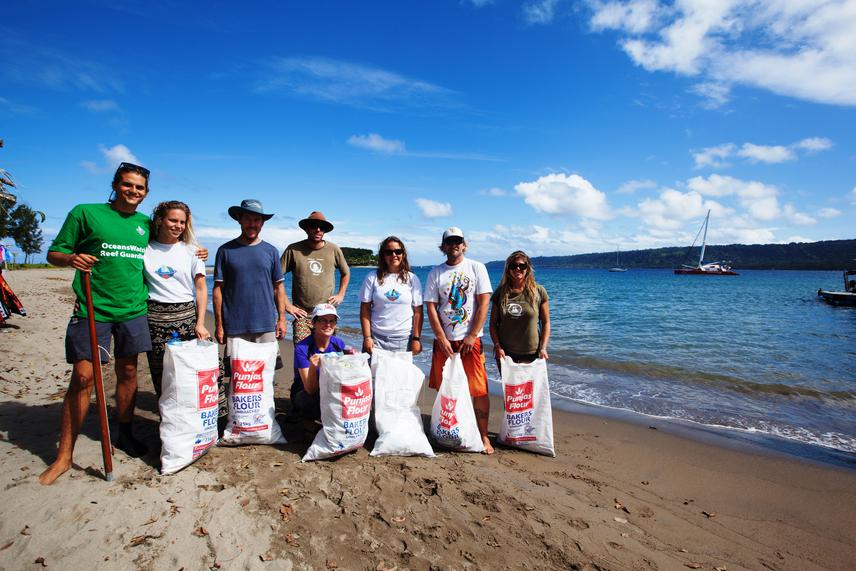Chris Bone
Other projects
18 Aug 2016
Creating a Sustainable Livelihood in Communities to Take Pressure off Marine Resources
We aim to assist three communities towards having more fish to eat and more income to educate their children and provide food and healthcare in times of need.

Beach clean-up.
Chris Bone and OceansWatch respond to requests from communities struggling with declining resources and the associated impacts on their livelihoods. We help them through resourcing, empowering and facilitating processes that lead to the development of fisheries management plans, awareness programs and marine protected areas. We educate communities about protecting and ensuring sustainable yields from their marine ecosystems and how to adapt to the predicted effects of global climate change.
The sustainable livelihoods of both communities and individuals are facilitated by capacity building and providing small-scale resources. This work empowers communities and provides them with the resources and knowledge to develop their own sustainable businesses.
With the support of the Rufford Foundation we have been working with several communities in Vanuatu. Many communities, visited between 2008 and 2013, have set up Community Conservation Areas and have been empowered to better manage their resources. Some of these communities need additional ongoing support. Including Port Olry where traditionally, the people lived away from the coast in the surrounding hills so fishing is a relatively recent and they need more assistance to reverse the damage to the coral and declining fish catches. They have a small eco-tourist venture and want the reef to recover sufficiently to be an attraction.
We are also working with the two communities of Pwetevut Bay on Gaua are Dolab and Ontar. Their sustainability depends on their gardens, fishing, chickens, and pigs. Although they receive supplies from the copra boat, this can be challenging and unreliable as it has no regular schedule. In 2013 the last boat to visit the village had been 3 months prior to our visit. Work with these communities will build their capacity to be more resilient in the face of food shortages and offer them an alternative livelihood. These communities have also been recently affected by a tropical cyclone, April 2014.
The key outcomes we are working towards for these villages are:
• Increased awareness of marine conservation
• Community Conservation Areas (CCA) mapped and registered
• Trained Reef Guardians who are informed to care for and monitor their reefs
• A coral gardening projects with local school
• A women’s coconut oil project in two communities to provide an alternative income.